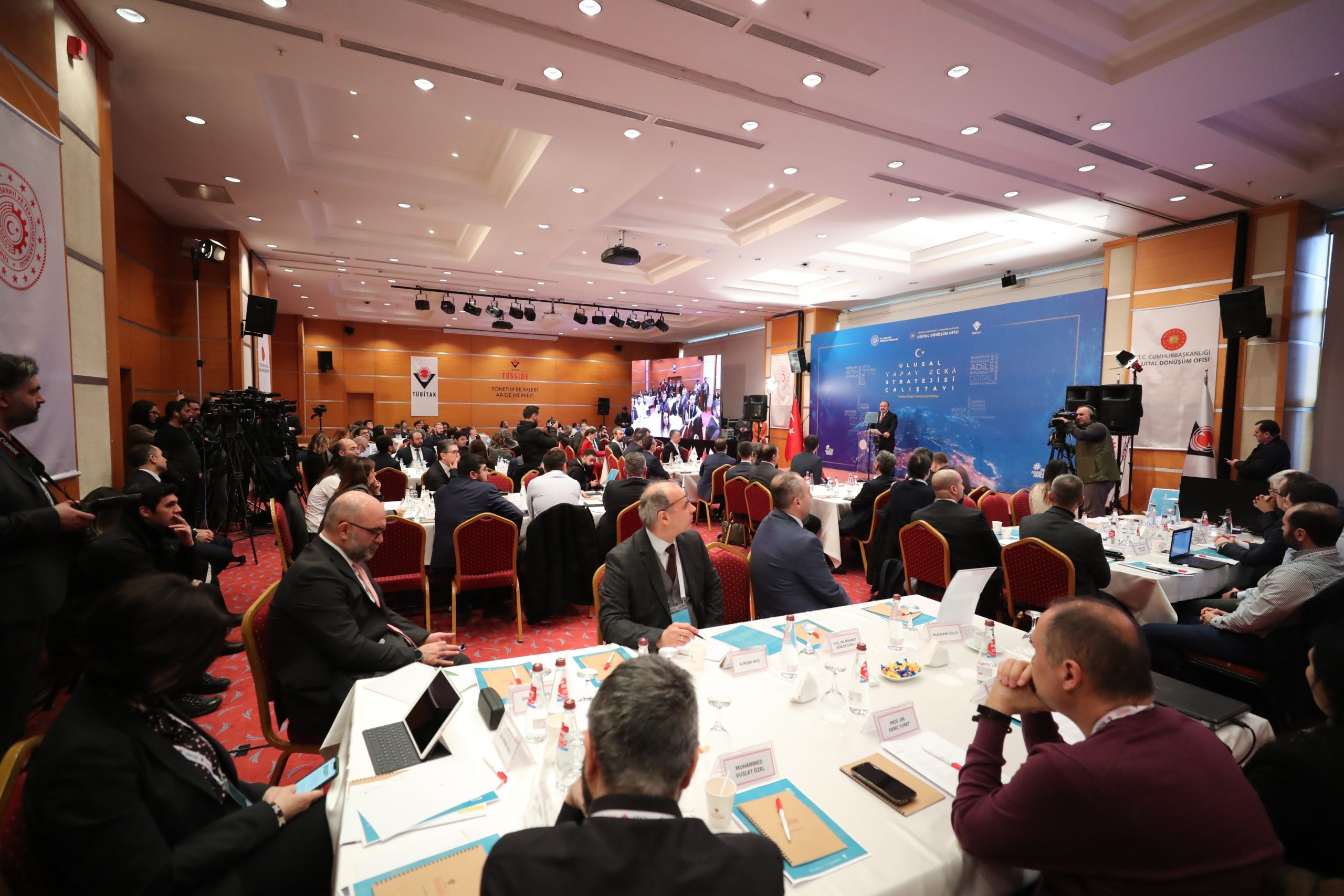The coming days will be crucial for Turkey in determining a road map to development of artificial intelligence (AI). The Presidency’s Digital Transformation Office, which is the commanding force behind Turkey’s national AI strategy, recently brought together people from various sectors and fields as part of the last stage of a series of projects that have been ongoing for more than two years, to answer the following questions: What do you think our strategy should be? What should we look out for? How can you contribute?
Turkey’s long-awaited strategy will be officially announced shortly after all these answers are evaluated. According to the Future of Life, 34 countries have already determined their national AI strategies. Turkey will soon be joining them, setting itself a clear course in the field of AI tech and developing moves accordingly.
Ali Taha Koç, president of the Digital Transformation Office, gave hints about what this strategy would encompass at the National Artificial Intelligence Strategy Workshop held at the Scientific and Technological Research Council of Turkey (TÜBİTAK)’s Gebze Campus on Feb.19-22, which also saw the participation of Industry and Technology Minister Mustafa Varank.
Koç stated that they are set to become a country that not only consumes technology but also one that produces it.
“Turkey’s data will remain in Turkey. In this sense, we need to protect our AI models and the algorithms created with our national data as well as protecting it as a whole,” he said.
Koç said being in the digital age, they are working not only with data but also with an understanding of governance aimed at generating value from such data.
“One of the most important methods of generating value from data is AI technologies,” Koç continued. “AI is a data-driven system. Considered as the crude oil of our age, data is a resource used in both the training and testing of AI systems. This brings about the requirement of correct classification and labeling of data. Unfortunately, if your data is not labeled and classified correctly, it cannot be used in the correct manner.”
Security of algorithms
In his speech, Koç also touched on the international debate on how healthy, and more precisely, how reliable, AI algorithms are, pointing to the criteria of quality and protection of data in this discussion.
“As (a digital transformation) office, we say that Turkey’s data will remain in Turkey. In this sense, we need to protect our data as well as the AI models and algorithms created with our national data because these algorithms can be prevented (from proceeding) or get stolen, and on top, our national data that creates this algorithm can be stolen with reverse engineering, which in itself constitutes a problem. So, one of the most important things we will do is to figure out how to secure our AI algorithms. We have to ensure the security of our AI algorithms in the same way.”

Ethics cannot be overlooked
Koç pointed out that AI systems can be used as a decision support system especially in the field of health care.
“When we start doing genome research with AI algorithms, we will be able to find a treatment for the novel coronavirus, and maybe even cancer, but perhaps all of these algorithms will also give birth to a biological weapon. Therefore, we need to discuss the ethical aspects of using AI in the field of health care and come to a final decision,” he continued.
“For our AI algorithms to function properly, one of the most important things apart from ethics and law is the opportunity to work openly and efficiently. We need to have open data. Some even think that AI algorithms harbor the power to eliminate discrimination in society by contributing to social harmony. As well as the opportunity to access AI technologies equally… We think of it as a paradigm-shifting technology that will ensure global justice by providing equal access to all. Just as President Erdoğan says, ‘The world is bigger than five,’ we say that the AI world is bigger than just two (China and the U.S., the most developed countries in the field for now). We think these are technologies that should be studied in terms of the welfare of whole humanity.”
AI in the age of digital transformation
Koç pointed to the fact that AI is one of the most important stakeholders of the digital transformation field as it is in almost every other field.
“With the increased use of AI, various concerns have emerged about how to ensure transparency, security and accountability,” Koç said.
“To eliminate the concerns that may arise, this system must first be human-centered, it must be fair, it must increase social welfare, it must be transparent, reliable, accountable, value-based, and dependent on national and ethical values. In our AI strategy, which should focus on human and ethical values, we have obligations such as creating a sustainable and production-based environment in Turkey by building an AI ecosystem, paving the way for work on AI in our country by completing the framework of data access, sharing and increasing the efficiency of all businesses and business processes in the public sector by expanding the use and application of AI technologies, sustaining this AI ecosystem by bringing up and educating qualified manpower, increasing the human benefit of each AI system to be produced, and ensuring its well-being.”
Last Updated on Mar 04, 2020 4:50 pm










Discussion about this post